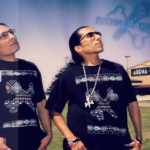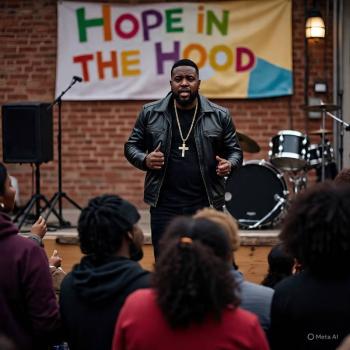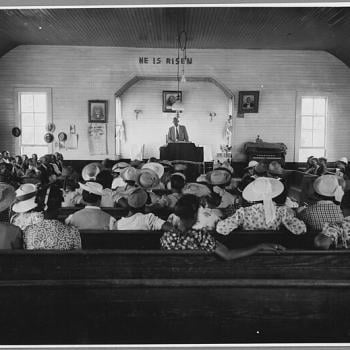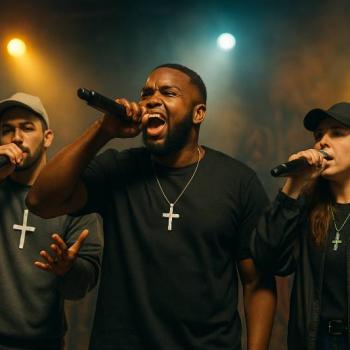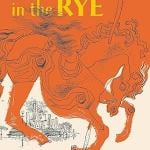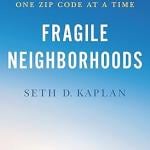Based on the news from today, Tuesday, July 22, the passing of the legend Ozzy Osborne, I’m going in a different direction with this article.
“That statement, attributed to his wife, Sharon Osbourne, and his children Jack, Kelly, Aimee and Louis, reads, “It is with more sadness than mere words can convey that we have to report that our beloved Ozzy Osbourne has passed away this morning. He was with his family and surrounded by love. We ask everyone to respect our family privacy at this time” (NPR, July 22).

A Meeting With A Sound
Ozzy came to my ears at the fertile listening years of the early teens. Spending hours listening to the composite sounds and lyrics while studying the cover art on the albums (yes, I had the physical records), my youth was being washed by the influence of the heavy metal wave from the expanded British metal scene.
The passing of Ozzy’s sonic soulmate, Randy Rhodes (guitar), was the first time I had to endure the passing of a music hero. This was a turning point in Ozzy’s solo career (1980), coming from the already established iconic work of Black Sabbath (1970–1979).
Seeing Ozzy’s career evolve from stage personality to reality television persona, he never seemed to be remiss about what was next. MTV’s “The Osbornes” was a cult classic and a blueprint for future reality television programs. The reason for the show? To provide audiences with the inner working reality of a rock star making a turning point in his career. Supported by his wife and manager, Sharon, “The Osbornes” helped Ozzy recreate his career in multiple dimensions.
The last television work Ozzy conducted with his son, Jack Osborne, was as humorous as it was enlightening. Ozzy and Jack’s World Detour filled the evening hours when all else failed.
The YouTube playlist for “Ozzy and Jack’s World Detour” can be found here.
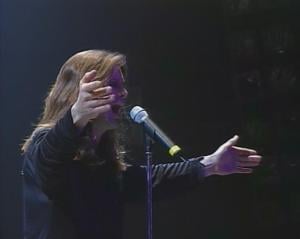
Here’s a sample from “Ozzy and Jack’s World Detour,” The History Channel, December 2017, Season 2, episode 5, “Spice In Laws.”
A Touchstone
Ozzy Osbourne, heavy metal icon, dies at 76
“Known as the ‘Prince of Darkness,’ the lead singer of the massively influential rock band Black Sabbath, Osbourne reached another generation via the MTV reality show The Osbournes in the early 2000s” (NPR, July 22).
NPR’s All Things Considered (July 22) has an audio portrait of Ozzy’s earliest starts and career leading to his final concert.
Ozzy Osbourne, Black Sabbath singer, solo artist and reality TV star, dies at 76
“Ozzy Osbourne, the storied Black Sabbath lead singer known as much for his excesses and bizarre onstage antics as his pioneering heavy metal music, has died” (The Los Angeles Times, July 22).
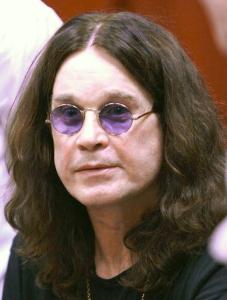
“Born John Michael Osbourne on Dec. 3, 1948, as the youngest of four children, Osbourne was raised in a working-class neighborhood in Birmingham. His mother worked in a factory; his father worked nights as a toolmaker. Osbourne said his parents were poor and had few expectations that their son would amount to much” (The Los Angeles Times, July 22).
Dropping out of school and through a flurry of endless jobs, Ozzy was inspired by the Beatles to take up a career in music. A simple music store post, an unstoppable desire to get into music, chance connections with an unlikely classmate, and the powerful presence of a bassman and drummer all pointed to the eventual evolution of Black Sabbath in 1968, with their first recording released in 1970.
The first release of Black Sabbath was no coincidence. Released on Friday, 13, 1970, by Vertigo Records (UK), the dark image persona of the band was set to capture the eyes and ears at the turn of the decade.
“Black Sabbath released its self-titled first record on Friday the 13th in February 1970, the date hardly a coincidence. It went platinum in England and the United States. Dismissed or simply ignored by critics, it nonetheless became required listening in college dorm rooms across the nation. The band went on to release more than a dozen studio albums, many of which coincided with world tours” (The Los Angeles Times, July 22).
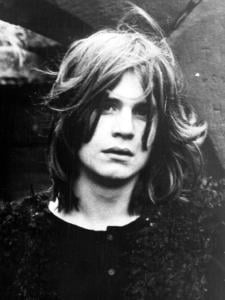
“Ozzy Osbourne married Sharon Arden, the daughter of the band’s manager Don Arden, in 1982, and she took over managing his career. The couple launched Ozzfest in 1996, and the touring festival became the first dedicated to hard rock music and emerging heavy metal artists. Osbourne headlined the inaugural shows in Phoenix and Devore, Calif., and donated a portion of the proceeds to charities across the country” (The Los Angeles Times, July 22).
The 1980s brought controversy to Ozzy. First, the biting off the head of a bat in 1982, believed to be a prop. This act brought cancellations of shows in various Midwest states. Then, in 1985, Ozzy
“was dragged into court over the lyrics of one of his songs, “Suicide Solution” — a track on “Blizzard of Ozz.” He was accused in a 1985 civil suit of causing the deaths of two teenagers who allegedly died by suicide after listening to the song. Osbourne said later that the song was inspired by the alcohol-related death of AC/DC lyricist Bon Scott in 1980,” (The Los Angeles Times, July 22).
From the 1990s on, Ozzy saw his career escalate. Multiple global awards, two inductions to the Rock and Roll Hall of Fame, and high-profile performances became a staple. A diagnosis of Parkinson’s Disease in 2019 would mark a slow decline in Ozzy’s life. He remained committed to working as best he could to support his fans. Family came to his side as Ozzy continued to record with minimal performances. Late-life sobriety and the will to continue to serve audiences, Ozzy would present his final concert in his hometown of Birmingham, UK, on July 5, 2025.
“Ozzy Osbourne is survived by his wife and their three children, Aimee, Kelly and Jack Osbourne, and several grandchildren. He also is survived by three children from a previous marriage: Jessica, Louis and Elliot” (The Los Angeles Times, July 22).

Understanding Faith
Ozzy Osbourne was consistent in his faith and belief in God. He donned the dark image as a persona, a caricature, a stage presence. Public misappropriation of this image as his actual belief system is inaccurate. Ozzy is quoted in a Guardian article, 2014, stating, “I’m a Christian. I was christened as a Christian. I used to go to Sunday school” (qtd in Premiere Christianity, July 2025).
Derek Walker writes in Premiere Christianity, “[t]he misunderstandings began with the band’s name. Inspired by a Boris Karloff movie, ‘Black Sabbath’ is the title of their most popular song when they started out, so they took it on as a moniker” (Premiere Christianity, July 2025).
Pointing to Ozzy’s understanding of his faith, on the Black Sabbath record Master of Reality (1970) the track “After Forever,” Ozzy sings the lines,
Is God just a thought within your head or is he a part of you? / Is Christ just a name that you read in a book when you were in school? / Could it be you’re afraid of what your friends might say if they knew you believe in God above? / They should realise before they criticise that God is the only way to love / Perhaps you’ll think before you say that God is dead and gone / Open your eyes, just realise that he’s the one / The only one who can save you now from all this sin and hate.
The lyrics, contributed by Black Sabbath’s bassman, Geezer, frame what Ozzy would continue to pursue in other later works, in his solo career, and with the last Black Sabbath album, 13. The involvement of faith, as a question with a personal attitude and approach, is the style Ozzy continued to use in his later works. The early involvement of this track and lyrics oversteps critics who would like to coin Ozzy’s attention to faith as being an extension of his aging career. The album was released in 1970, with the track “After Forever” released as a single in 1971. Ozzy’s arc throughout his career includes songs with a religious tone. This conscious choice points back to Ozzy’s qualification of his early upbringing and foundation as a Christian. Though not publicly stated in such strong terms, his dark image and self-proclaimed nickname as the “Prince of Darkness” were a dominant signifier of his work. Yet, in his own words, this approach was the farthest from the truth: “It’s just a role I’m playing” (Premiere Christianity, July 2025).
Harvy, in House and Whips, writes, “[Ozzy was] [b]orn into a working-class Catholic family in Birmingham, England, Ozzy’s early life was steeped in religion, at least superficially. He attended Catholic school and even briefly considered becoming a priest as a kid. But organized religion didn’t stick” (House and Whips, July 2025).
Continuing to discuss his faith, Ozzy stated in a 1992 interview, “I don’t go to church, but I don’t think you have to go to church to believe in God” (qtd in House and Whips, July 2025).
An independent soul, there’s no doubt. Ozzy continued to state his practicing membership in the Church of England and praying before shows (Christian News Commentary, July 2025). Combine these with his ongoing struggle with faith. His drug rehabilitation, commitment to being a strong father figure, and a good husband, and the use of probing religious-centered lyrics in multiple tracks, and his persisent value he placed on his bible, a gift from an evangelist to Ozzy that he kept next to him at home and on the road, Ozzy demonstrated a contemporary nature of what it is to grow in faith and belief in a challenging world.
Placed literally on stage in a global arena, audiences, promoters, and the record industry were more adept at consuming his dark image. Discussing Ozzy’s journey with faith was not a market feature seen as an element useful to sell records. Add to this his quiet and personal approach to this area of his life, Ozzy is less an enigma of rock music than he can be understood, with a lens on faith and belief, as a man wrestling with his spiritual growth. Ozzy used what God given gifts he had to personally explore and subtly articulate his viewpoints.
A sensitive ear can listen beneath the grinding guitar solos, rash vocal style, and throbbing drum-bass lines to hear a soul going through personal developments and inquiries of faith, belief, and religious representation. Had Ozzy stated an ease with his faith and belief, that would be a fallacy. The reality of his example as a man, struggling with spiritual growth throughout his life, helps those who are seeking a relationship with God to know that, in the end, we are all human and endure our journey toward God.
Listening Beyond The Words
Where others have elected to honor Ozzy’s oeuvre with his most popular recordings from his solo career, I recognize a different direction that positions Ozzy’s work as a critical commentary on culture, faith, and personal struggles. As a lyricist, Ozzy’s words captured the temperature of the times. Sometimes overshadowed by the grinding heavy metal soundscape, the words that Ozzy put together align his work with those of other monumental poets, lyricists, and authors. In the choice of music as his text, there is no failing of the value, intent, and pointed nature of his words.
Looking To The Last
The last Black Sabbath record, “13” (June 10, 2013), could have opened another chapter in the career of these godfathers of British metal. Ozzy’s final concert, the Back to the Beginning Concert, on July 5, 2025, in Villa Park, Birmingham, UK, was the grand farewell. Ozzy touched all areas of pop culture and recording politics. When such a profound individual is noted on “Meet The Press” (MSNBC, July 22, 2025), you can rest assured, his reach was well beyond the meager start of a little-known British band led by a piano-playing, harmonica-carrying front man with a mic in his hand.
“Ozzy Osbourne played his final live show a little more than two weeks before his death on Tuesday. The singer, along with his Black Sabbath bandmates, played the daylong Back to the Beginning concert at Villa Park in the group’s hometown of Birmingham on July 5” (Bing News, July 22).
The Final Work
Black Sabbath’s 13 was their ninth and final studio recording. 2013 BS Productions Limited, released online January 1, 2013, physical U.S. release June 10, 2013.
This work propelled the band out of an 18-year season between recordings. Full of philosophical lyrics, grinding guitar techniques, and a throbbing drum-bass duo, this final studio recording by Black Sabbath proved to be a testimony in time for the band.
“God Is Dead?”, posted August 2018.
Taking up the mantle to deconstruct the grand statement of Nietzsche, “God Is Dead,” Ozzy adds a question to this phrase. On the surface, the phrase would lead one to believe Ozzy’s perspective is dystopian or nihilistic. This is the farthest from the truth. Rather, Ozzy challenges this philosophical phrase on its merits. Nietzsche penned this phrase to articulate the failing relationship of his modern European culture with faith, religion, and God. Where Nietzsche uses this philosophical phrase as a definitive, Ozzy narrates the phrase as a question. This phrase, as Ozzy analytically states, is one questioning our understanding of faith, religion, and God. The wordplay shuffles Christian signifiers, prompting the listener to question their connection to faith and God. Ozzy retains the core spirit of Nietzsche’s phrase, but as an unanswered question, not a terminal definition.
“Zeigeitst,” posted August 2018.
Working as a preface to “Age of Reason,” this is the shortest track on this seminal recording. The lyrics explore the definition of the word “zeigeist.” What is in the environment, socio-political context, national spirit, and personal evolution? Zeigeist is a dynamic word, and Ozzy takes advantage of this mechanic. The lyric poetry is accompanied by a softer sound on this album. Together, these elements allow the words to float over the hypnotic timbre. The closing guitar solo is a perfect companion to the unanswered questions of the lyrics. The patience and unaffected composite sound mark this recording with a mature nature.
“Age of Reason,” posted August 2018.
Seamlessly following “Zeigeist,” “Age of Reason” is a crunching heavy metal classic ahead of its time. Here, Ozzy continues his expositional reading of the contemporary socio-political environment. The metaphorical interplay demands repeated listening to the track. As a sounding archaeologist, each listening unearths more connections with a broader context. This level of writing is hard to come by in any genre, let alone heavy metal. Tony Iommi’s signature power chords push the work along with Ozzy’s lyrics. This companionship is evident in a long-term relationship where one knows the thoughts of the other. This work may have been recorded in the early 21st century, but the title, “Age of Reason,” applies to any age grateful enough to entertain this work, with a serious, critical ear.
One Final Thought
“Thank you, Ozzy, for giving me a reason to spend hundreds of dollars on records, cassettes, CDs, and videos. I never got to see you live, but I honestly can say, the shows I watched and the records that were worn out by repeated playing helped me through times I didn’t know were deeply rooted in my sonic profile.”



